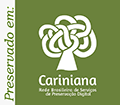EXPLORANDO A QUÍMICA FORENSE PARA MOTIVAR O PROCESSO DE ENSINO-APRENDIZAGEM DE QUÍMICA
DOI:
https://doi.org/10.5281/zenodo.15723245Palavras-chave:
Ensino de Química, Química Forense, Engajamentos dos alunosResumo
A falta de interesse e motivação dos estudantes pode comprometer a aprendizagem no ensino de Química. Com base nisso, este trabalho propõe dinamizar e tornar o aprendizado mais significativo por meio da aplicação da Química Forense como metodologia alternativa, integrando investigações reais para desenvolver habilidades críticas e aumentar o engajamento dos alunos na disciplina. Para isso, foi realizada uma aula simulando uma cena de crime com uma turma do 2º ano do Ensino Médio do CEPI Osvaldo da Costa Meireles, composta por 26 alunos com diferentes níveis de interesse e habilidades em ciências. Durante a aula, os alunos participaram de experimentos práticos, como a análise de impressões digitais, a detecção de sangue com luminol e a identificação de DNA, o que ajudou a conectar conceitos teóricos com situações reais e a desenvolver habilidades investigativas e de resolução de problemas. No entanto, a abordagem também revelou a necessidade de um planejamento cuidadoso para evitar criar uma percepção fantasiosa da química forense. Assim, recomenda-se expandir a utilização da química forense em outros contextos educacionais e realizar estudos a longo prazo para avaliar seu impacto no desempenho acadêmico e no interesse dos alunos, além de obter feedback dos professores sobre a viabilidade e os desafios dessa metodologia.
Downloads
Publicado
Como Citar
Edição
Seção
Licença
Copyright (c) 2025 Adriana Toshie Okagawa Silva

Este trabalho está licenciado sob uma licença Creative Commons Attribution 4.0 International License.
Direitos Autorais
Autores mantém os direitos autorais e concedem à revista o direito de primeira publicação, com o trabalho simultaneamente licenciado sob a licença Creative Commons CC-BY 4.0 que permite o compartilhamento do trabalho com reconhecimento da autoria e publicação inicial nesta revista.
O conteúdo relatado e as opiniões emitidas nos textos publicados nesta revista são de exclusiva responsabilidade dos autores.



